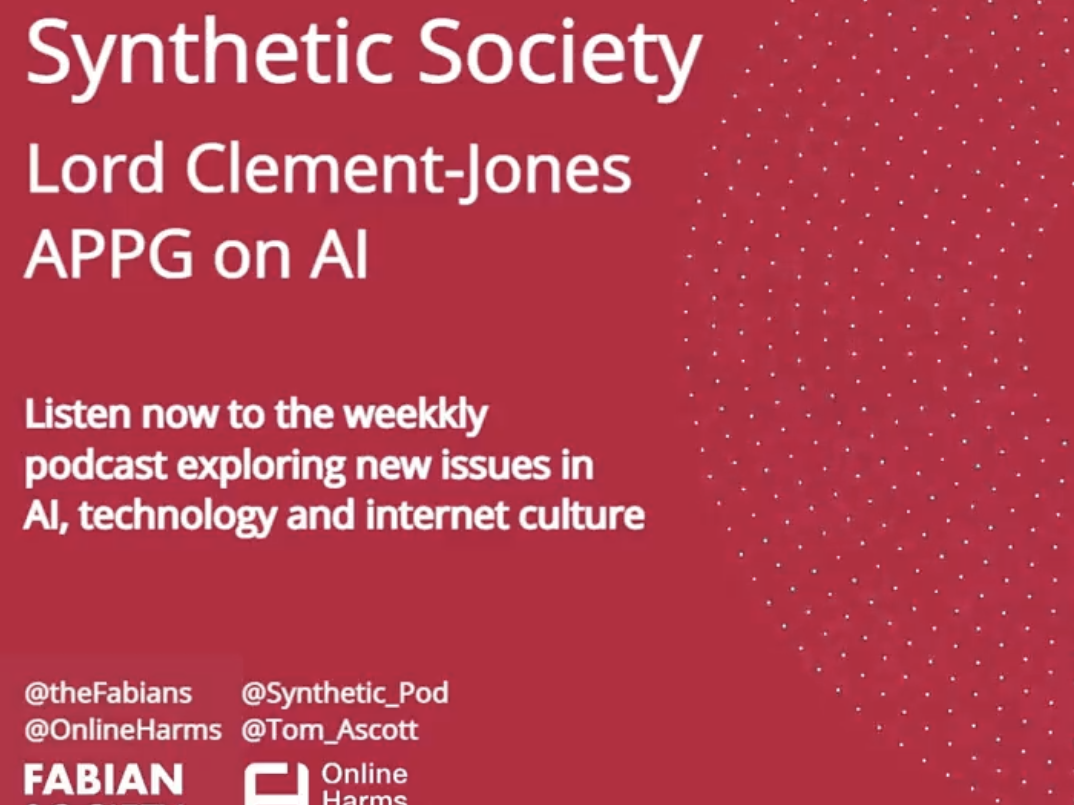I recently went to techUK where Julian David their Chair and Charlotte Holloway their Head of Policy launched their Manifesto for growth and jobs.
Ed Vaizey, Minister for Culture & Digital Industries, Iain Wright Shadow BIS Minister and I gave our responses to the recommendations and outlined our parties’ visions for digital and tech policy post-2015.
Here is what I said:
I am delighted to be here at the launch today of techUk’s Manifesto.
It strongly reinforces and complements the Start up Manifesto from COADEC published this month and the Report “Connected Cities” from Jim O’Neil’s City Growth Commission published in July. Singing from the same hymn sheet.
I can’t comment at length. But I want to deal in turn with a few key aspects set out in the manifesto.
First , Access to Finance
I agree need to ensure that Tech companies at every stage have access to the Finance they need to grow and can stay in London.
We’ve successfully tackled access to early stage equity finance through the Government’s Seed Enterprise Investment schemes it’s one of the most generous early stage tax breaks available anywhere in the world.
Tech companies have also benefited from a range of Government investment and support schemes, including the Business Growth Fund, Enterprise Capital Funds (ECF)and the Enterprise Finance Guarantee (EFG),
It is the later stages of equity finance where we are behind Silicon Valley and Nasdaq in New York. Problem of business accessing finance to achieve scale. There is a danger of businesses moving to the US at this funding stage.
No solution yet although the LSE looking at this and there is evidence from recent listings on the Stock Exchange that the creation of the new High Growth Segment to encourage companies to list here is having an impact. Look forward to Sherry Coutu’s report mentioned in the Manifesto
As regards debt finance with very limited exceptions the banks are failing SME’s and start ups but Crowd funding is beginning to have a real impact and it is good that fund such as Funding Circle are receiving government suppor through the Business Finance Partnership scheme (BFP).
Loans through Crowd funding have recently hit the £2bn mark.
The Lib Dems don’t propose waving a magic wand but in our pre manifesto explicitly we want to facilitate new entrants to the banking sector, including through public procurement policy, so that there is much more choice and variety of competitors in banking, in particular business banking and encourage the growth of crowd funding and alternative finance models, .
We also echo the Manifesto in supporting innovation through greater public funding on a longer timescale, with a ring-fenced science budget, more ‘Catapult’ innovation and technology centres.
I am glad to see praise for Catapult centres . The Euston Connected Digital Economy catapult has worked diligently with Dominic Young and his team to develop the Copyright Hub. But they are a well kept secret and their work needs to be promoted.
Skills
The talent available however is far below what we need. Start ups need a mixture of technical and creative skills to develop their new digital services. The manifesto quotes my colleague Baroness Lane-Fox in saying we need 1 million tech jobs to be filled by 2020 to keep up with demand.
I welcome the mandatory inclusion in the curriculum of coding/computer science from this September for 5-16 year olds, the first in the G20 Also welcome the involvement of the tech sector in Code Clubs.
But even if the pipeline from schools was finding the right talent programmers fresh out of college are not necessarily up to the job. Training and proper apprenticeships are hugely important.
•Lib Dems are keen to increase the number of apprenticeships and improve their quality, extending the Apprenticeship Grant for Employers for the remainder of the next Parliament, delivering 200,000 grants to employers and expanding the number of degree equivalent Higher Apprenticeships.
• Develop National Colleges as national centres of expertise where there is demand and an identified need, to deliver the high level vocational skills that businesses need in these areas
That said we will still be reliant on the skills of overseas undergraduates and post graduates and we should welcome them.
As the Manifesto makes clear -reinforced by a recent report from universities Uk and an earlier report from Policy Exchange–we must change policies towards overseas students
I welcome the call for a smart migration policy. It’s no secret that there is a difference of emphasis between the coalition parties on this. Can’t chase unrealistic targets in trying to reduce in net migration at the expense of growth in the digital economy.
• In our Pre manifesto we pledge to remove students from our immigration targets given their temporary status, while taking tough action against any educational institution which allows abuse of the student route into the UK.
In my view we need to go further and take the actions suggested by techUk (as does the Start up Manifesto) such as reinstatement of the post study work route visa. I have asked numerous questions on visa policy towards students for the past 4 1/2 years and we are walking towards disaster.
Clusters
The manifesto clearly recognizes the importance of geographic and sectoral balancing of our economy . Correct when the Manifesto says tech economy “more geographically extensive than is often recognized”
And this leads to the importance of clusters. Tech City yes-with 15,000 startups last year and the year before.
70,000 people now employed there. The Tech sector has accounted for 30%of new London jobs since 2009.
But there are so many other places,
- Newcastle Silicon Shore,
- Liverpool with the Baltic Triangle
- Brighton’s so called Silicon Beach
- Dotforge in Sheffield
Also Manchester, Edinburgh, Leeds, Bristol. Birmingham, and Bath.
The role of universities is crucial in all of this.
But how can we strengthen our clusters?
RSA’s City Growth Commission chaired by Jim O’Neil takes the view that too many of the UK’s urban areas outside London are failing to achieve their growth potential.
It is of course important that we build on initiatives like the City Deals and the Regional Growth Fund.
The number of City Deals and Growth Deals have grown, not just in the bigger cities but in places such as Brighton and Cambridge too. The Regional Growth Fund has already delivered 99,000 jobs and £1.8 billion of private investment.
But we need to go further.
We need to give the cities greater powers, especially over finance. More than 90% of tax is collected by central government. We need to devolve more economic decision making to local areas and away from national government.
- Our proposal is to introduce ‘Devolution on Demand’, enabling even greater devolution of powers from Westminster to councils or groups of councils working together
- Establish a commission to explore the scope for greater devolution of financial responsibility to English local authorities, and new devolved bodies in England.
We also need much better transport and digital connectivity between what Jim O’Neill and the City Growth commission call Metros.
• Lib Dems propose to Invest in major transport improvements and infrastructure to create a ‘Northern Economic Corridor’; a focus for growth, innovation and prosperity across northern England.
International Dimension
We are already the highest net exporter of computer and information services among the G7 countries and our tech/internet economy accounts for a greater percentage of GDP in the UK than in any other G20 country.
So we need to make sure that digital markets are open.As the manifesto says we need to break down the barriers to E-commerce across the EU to create a genuine European Digital Single Market.
Then there is TTIP the US/EU free trade agreement in the offing.
Jonathan Lord Hill will be an effective advocate for the UK in both. The Lib Dems position on staying in the EU is well known.
Safeguarding and inclusion
Heartening to see techUK’s concerns over online privacy and security. Agree need to demonstrate that security services and corporate sector operate within clear and strict boundaries to ensure that public trust is retained. Cloud security and collection and retention of data have become real issues in the wake of recent events.
Lib Dems have put forward proposals for a Digital Bill of Rights to define and enshrine the digital rights of the citizen, protect people from unacceptable intrusion by the state and by other organisations, and giving people more control over their own data.
It is important that authorities can only accesss personal data where an individual is suspected of taking part in illegal activity.
Child online protection important too. The BBFC is an important part of the voluntary agreements among service providers but mobile standards are better than those for the public WIFI providers
But we must not go too far the other way. We must safeguard the essential freedom of the internet while ensuring the reasonable protection of individuals and businesses.
- The ECJ Spanish Google case establishing a Right to be Forgotten. Entirely agree with the Manifesto that it raises huge concerns.
- Then there is an EU Proposal to drop the exemption from Article 80 of the General Data Protection Regulation for journalists right to investigate in the public interest.
- The office of the Information Commissioner is under resourced.
The manifesto also urges that digital exclusion is tackled.There is still a lack of universal digital skills in Britain. Norway/Sweden by contrast have 97% basic digital literacy. The manifesto asks for a commitment by Government to fund the teaching of basic digital skills of the order of £900 million.
- I can’t commit to exact expenditure but Lib Dems certainly commit in our Pre-Manifesto to prioritise expanding digital literacy and connectivity.
Certain omissions
So all in all some very important conclusions which my party strongly supports and will support in any future government.
Let me just briefly however to mention some areas where in my view the Manifesto could have been more explicit.
- Recognize the importance of being world leader in the development of digital economy but doesn’t recognize the increasing convergence between platform content, between tech and the creative industries. There is no doubt that each sector is increasingly making use of relevant skills in the other.
- There is no mention of IP. Digital copyright infringement sanctions need to be enhanced. In the digital space The Follow the Money Initiative against infringing websites very important
- PIPCU is a vital resource in combatting counterfeiters and infringers There is no discussion of its future funding beyond 2015.
In the sum of things however can I congratulate techUK on their Manifesto and pledge my party to work closely in partnership with the industry.
6th April 2021
Regulating the Internet
22nd December 2015
How Does London Become the new Silicon Valley?
30th December 2013
Visas
23rd December 2013






